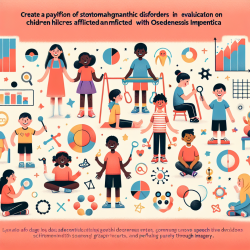The environmental effects of tobacco product waste (TPW), particularly cigarette butts, are often overshadowed by the well-known health risks associated with smoking. However, TPW poses significant environmental challenges that require urgent attention. The article "Extended Producer Responsibility and Product Stewardship for Tobacco Product Waste" offers insights into how these environmental principles can be applied to mitigate the impact of TPW.
Key Environmental Principles: EPR and PS
Extended Producer Responsibility (EPR) and Product Stewardship (PS) are two pivotal environmental principles reviewed in the research. EPR focuses on making manufacturers responsible for the entire lifecycle of their products, including take-back, recycling, and final disposal. This principle aims to internalize environmental costs into retail prices and shift waste management responsibilities from local governments to producers.
Product Stewardship complements EPR by involving all parties in the product lifecycle in managing environmental impacts. It is typically a voluntary system that shares responsibility among manufacturers, consumers, retailers, and other stakeholders.
Applying EPR and PS to Tobacco Product Waste
The research highlights several criteria for applying EPR and PS to TPW. These include:
- Shifting waste management costs from taxpayers to producers.
- Encouraging manufacturers to design non-toxic products.
- Internalizing waste management costs to reflect true environmental impacts.
While adapting these principles to TPW presents challenges due to the inherent toxicity of tobacco products, they offer a framework for reducing environmental harm.
Case Studies: Learning from Other Industries
The research presents case studies where EPR and PS have been successfully applied to other products:
- Oregon PaintCare Stewardship Program: This program manages leftover paint through a recycling fee at the point of sale, demonstrating effective stewardship.
- British Columbia Beverage Container Recycling Program: A deposit-refund system reduces litter by incentivizing returns.
- Recycling Household Batteries in Canada: Manufacturers fund battery recycling programs, showing potential application for TPW.
Policy Actions for Mitigating TPW Impact
The research proposes ten policy actions to address TPW through EPR/PS frameworks:
- Laws and Programs: Mandate EPR/PS for TPW management.
- Bans on Single-Use Filters: Reduce non-biodegradable waste by banning disposable filters.
- Bans on Outdoor Smoking: Decrease TPW in public spaces through smoking bans.
- Product Labeling: Inform consumers about TPW's non-biodegradability.
- Litigation Against Tobacco Industry: Hold manufacturers accountable for environmental cleanup costs.
- Litter Fees: Recover cleanup costs through fees on tobacco products.
- Deposit/Return Systems: Implement refund systems for cigarette butts.
- Waste Fees: Use consumer-funded fees for managing TPW disposal.
- Litter Fines: Penalize improper disposal of cigarette waste.
- Changing Social Norms: Educate the public about TPW's environmental impact.
The Path Forward: Encouraging Further Research
The application of EPR and PS principles to TPW is still in its infancy. Practitioners are encouraged to explore these strategies further and consider how they can be adapted to local contexts. By understanding and implementing these principles, we can make strides toward reducing the environmental footprint of tobacco products.
If you're interested in delving deeper into this topic, I highly recommend reading the original research paper. You can access it here: Extended Producer Responsibility and Product Stewardship for Tobacco Product Waste.










